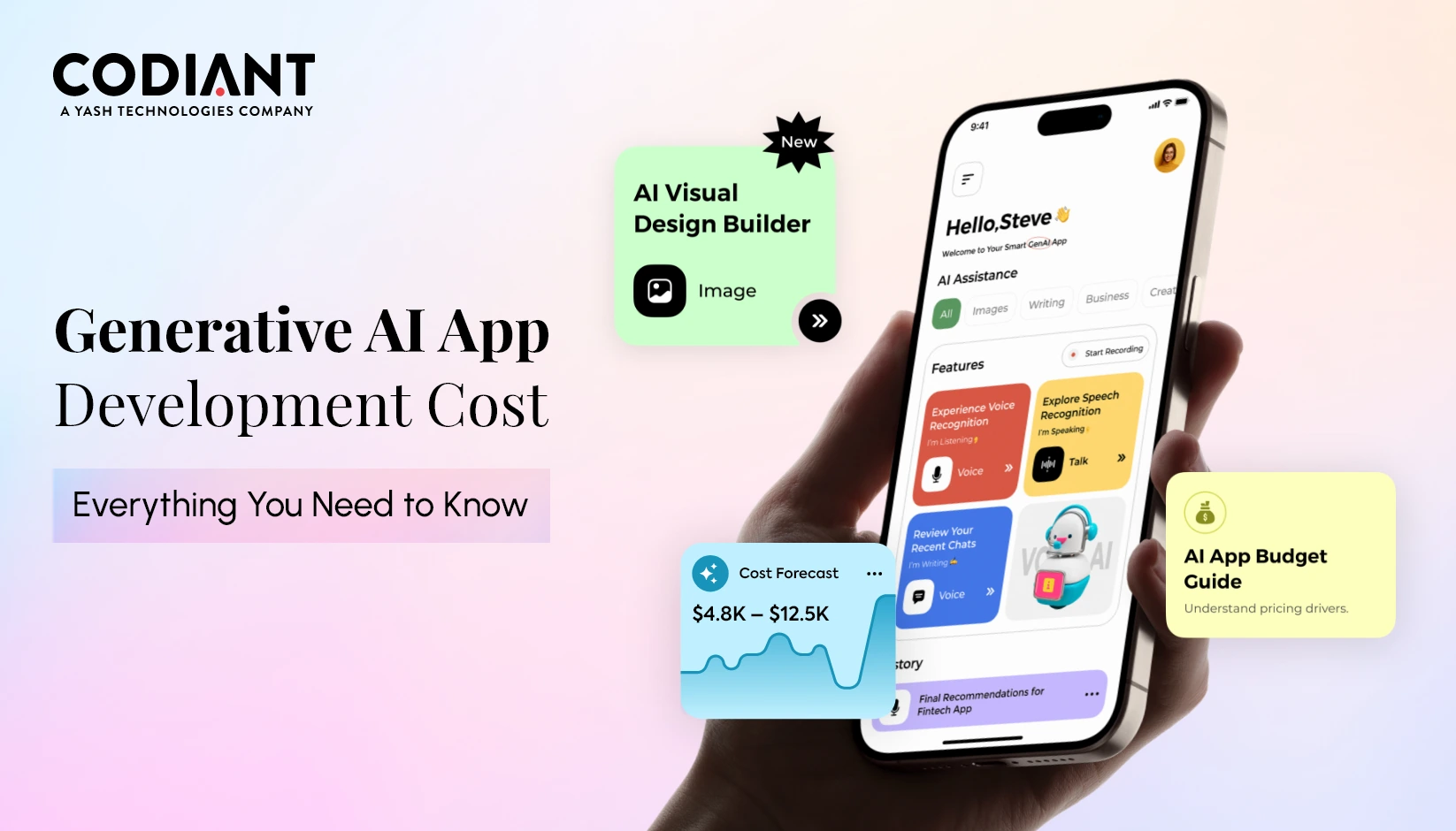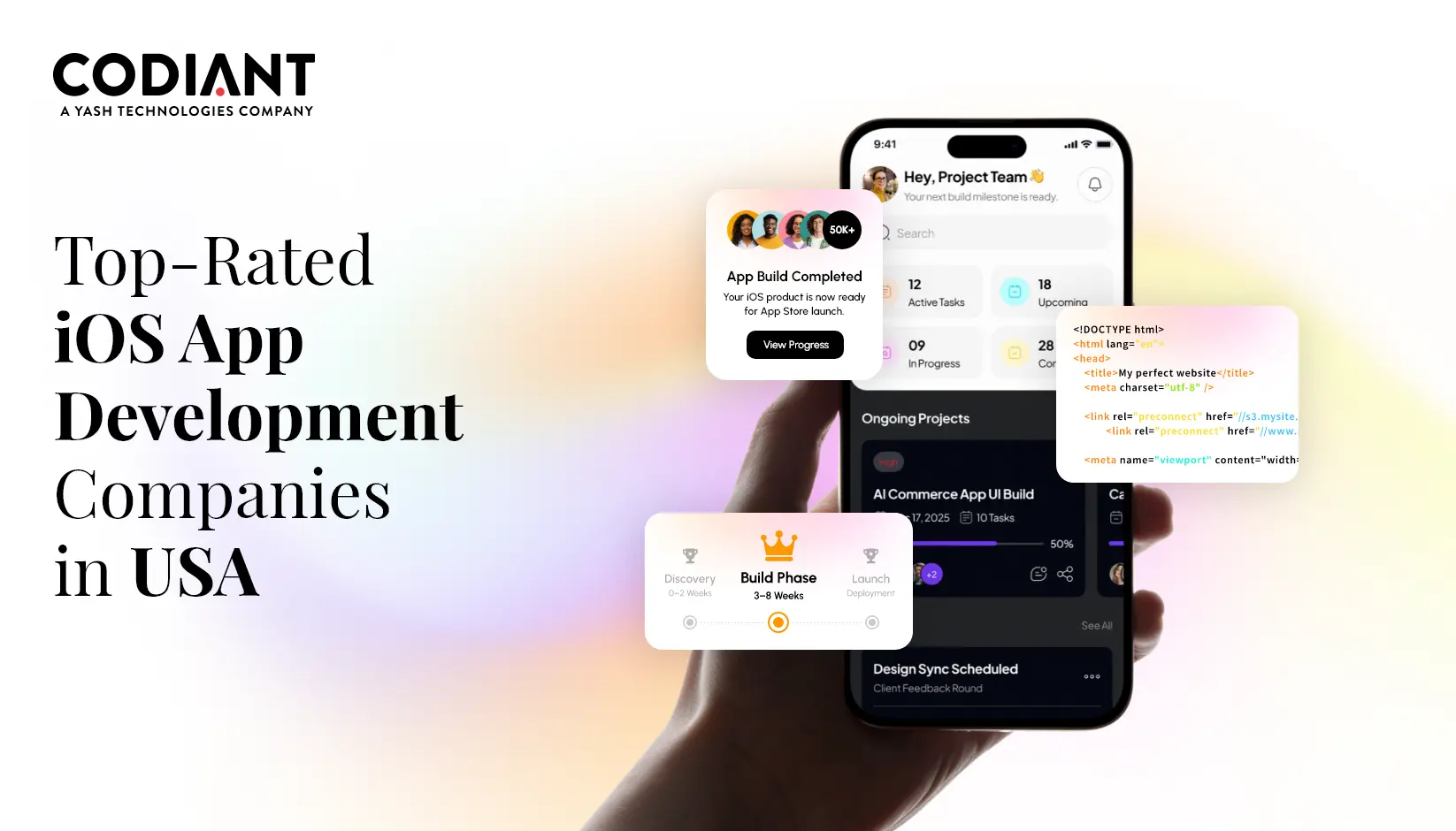Choosing the Right IT Consulting Partner for Business Transformation
Table of Contents
Subscribe To Our Newsletter

Today, the role of technology in running businesses can’t be overlooked. More than 90% of businesses worldwide are relying on IT solutions for their operation management and growth. Businesses are moving towards Business transformation, for which digital branding consulting has become a main constituent of modern business strategy. This benefits organizations with-
- Reaching target audience
- Building brand reputation
- Strong online presence
- Customer engagement
An IT consulting company provides expert advice and strategic insights that orchestrate business transformation. This will keep your businesses competitive, productive, and adaptable in an ever-evolving marketplace.
Also, the right IT consulting company has a team of IT consultants, that can make suitable Digital transformation for business to enhance the productivity and efficiency of an organization. It will bring technology, knowledge, experience, skills, and resources for addressing your IT and digital transformation challenges.
Let’s explore pain points that define the ways an IT consultant can help your business.
How Does an IT Consultant Help a Business?
IT Consultant helps keep your small or large business up-to-date with the latest technologies and trends. This allows you to innovate and stay ahead of competitors.
- Develop a strategic IT plan aligned with your business goals.
- Optimize your IT spending by finding bottlenecks and required solutions.
- Implement new technology solutions for a flawless transition.
- Evaluate vulnerability, make IT web security ideas, and implement measures for data protection.
- Streamline business processes through automation and optimization.
You might know that there are multitudes of IT firms, offering digital branding consulting, UI UX consulting, IT web security, cloud adoption & integration, and IT cloud services in the market.
However, selecting the finest IT consulting firm that can assist in enhancing your business’s IT strategy is crucial to affecting your success and expansion.
Here is a step-by-step guide to help you choose an IT consulting partner, that aligns IT strategies with your business objectives.
Step-By-Step Guide to Choose the Right IT Consulting Partner for Your Business
 Know What are Your IT Requirements and Business Objectives
Know What are Your IT Requirements and Business Objectives
Before you initiate to look for a trusted business transformation agency, you should be aware of your IT needs and business objectives.
You should analyze your current digital infrastructure and then define its loopholes. This will help to get the solutions that are aligned with your business objectives.
- Do a comprehensive audit and evaluate your needs.
- Find out particular IT challenges that you need to address.
- Establish clear IT goals.
- Determine budget constraints.
- Set a timeline to complete projects.
Search Effectively for Potential IT Consulting Firms
Research for potential IT consulting partners to support your growth and objectives constraints.
Online Research: Begin by conducting online research to identify IT consulting firms or individual consultants in your area or industry. Talk to one such IT consulting firm, that has positive reviews, a strong online presence, and a portfolio of successful projects.
Referrals: Seek recommendations from your professional network, colleagues, and industry peers regarding their experiences with IT consulting partners for business transformation. Collect insights on their strengths and weaknesses, if any.
Trade Associations: Many industry-specific trade associations and organizations maintain directories of reputable IT consultants and firms, which can be a valuable resource when searching for reliable IT consulting partners.
Participate in Industry Events: It is recommended to attend industry conferences, seminars, and trade shows. You will get a chance to meet and collaborate with leading IT consultants.
Perform Evaluation for Potential IT Consultant
After compiling a list of potential IT consulting partners, it’s time to evaluate them.
Experience and Expertise: Assess the experience and expertise of each potential partner. Additionally, look for consultants or firms that have a track record of working on projects similar to your needs.
Reputation and References: Check references and read reviews from past clients. A strong reputation for delivering results and excellent service is a positive indicator.
Credentials and Certifications: Verify the qualifications and certifications of consultants or firms. Certifications such as CompTIA, Cisco, or Microsoft can indicate a commitment to professional excellence.
Team Composition: Evaluate the composition of the consulting team. Ensure they have the right mix of skills and expertise to meet your specific IT needs.
Communication and Compatibility: Assess their communication style and compatibility with your organization’s culture. Effective communication is crucial for a successful partnership.
Cost and Pricing Structure: Request detailed proposals and pricing structures from each potential partner. Ensure that their pricing aligns with your budget constraints.
Conduct Interviews and Due Diligence
Narrow down your list of potential IT consulting partners and conduct interviews with them. During these interactions, ask the following questions:
Methodology: Inquire about their approach to IT consulting for business transformation. Specifically, ask how they plan, execute, and monitor projects. Ensure their methodology aligns with your goals.
References: Request additional references, furthermore, speak with the previous clients to get a more comprehensive understanding of their performance.
Scalability: Discuss the scalability of their services. And, determine if they can align with your organization’s growth and evolving IT needs.
Data Security: If applicable, discuss their approach to data security and compliance. Ensure they can help you maintain a secure IT system.
Timeline: Clear up all the project timelines and milestones. A reliable partner should provide realistic timeframes to complete project.
Contract Terms: Review the terms of the contract, including service level agreements (SLAs), deliverables, and payment schedules. Take legal advice, if needed.
Estimate Proposals and Choose a Partner
After conducting interviews and due diligence, carefully evaluate the proposals and information gathered from potential IT consulting partners. Consider the following factors when making your final selection:
Alignment with Goals: Choose the partner that best aligns with your organization’s IT goals and can provide solutions to your identified challenges.
Experience: Prioritize partners with a proven track record and experience in handling similar projects successfully.
Pricing Structure: Give focus on the quality of IT consulting services your IT consulting firm is offering in a specific pricing structure. Think from the perspective of getting long-term benefits.
Compatibility: Select a partner with whom your team feels comfortable working. Good chemistry and communication are crucial for a successful partnership.
References: Rely on references and feedback from past clients to validate the partner’s capabilities and reputation.
Outline Your Expectations and Discuss
Once you’ve chosen an IT consulting company that will make IT strategy for business, tell your clear expectations and business goals.
Talk About Your Project Scope: Define the scope of the project or ongoing services. Confirm that both parties have a shared understanding of the tasks and responsibilities.
What Key Performance Indicators (KPIs) to Use: Establish measurable KPIs that will be used to assess the success of the partnership. KPIs should align with your IT goals.
Communication Medium for Improved Productivity Level: Develop a communication plan that outlines how and when information will be shared between your organization and the consulting partner.
Decide Exact Project Timeline: Make a detailed project timeline with certain milestones and deadlines. Regularly review and update the timeline whenever required.
Collaborate and Monitor Progress
Effective collaboration is key to a successful partnership with IT consulting company. Consequently, you can stay engaged throughout the project or get yourself engaged by:
Regular Meetings: Schedule regular meetings with your IT consulting partner to discuss progress, challenges, and adjustments to the project plan.
Feedback: Provide constructive feedback and address any concerns on time. Encourage open communication.
Monitoring and Reporting: Review progress reports and make sure that the project is on track to meet its objectives.
Flexibility: Be open to adapting the project plan if unexpected challenges arise or if your organization’s priorities change.
Review and Assess Results
Once the project is completed or a significant milestone is reached, it’s essential to review and assess the results.
Achievement of Objectives: Evaluate whether the project successfully met its objectives and KPIs.
What Would Be ROI: Assess the return on investment of the IT consulting firm engagement. Check if it has provided some value to your organization or not.
Lessons Learned: Identify lessons learned from the partnership, both positive and negative, to inform future decisions.
Feedback to Improve: Ask for feedback from your team and the consulting partner. This helps to improve future collaborations.
Maintain a Long-Term Relationship
Building a long-term relationship with your IT consulting partner can be useful for ongoing support and future projects.
Continued Engagement: If the partnership was successful, explore opportunities for continued engagement, such as managed IT services or ongoing consulting.
Regular Reviews: Schedule periodic reviews to assess the ongoing effectiveness of the partnership and address any evolving IT needs.
Technology Trends: Stay informed about emerging technology trends and how they can benefit your organization. Leverage your consulting partner’s expertise in this area.
Evaluate Your IT Consulting Partner & Evolve
As your organization evolves and technology advances, periodically reevaluate your IT consulting partnership. You need to assess whether your partner continues to meet your needs. Also, you should explore opportunities for further improvement and growth.
By following these steps, you can choose your IT consulting partner who will provide strategic IT guidance and make a suitable IT strategy for the business to drive innovation.
Final Takeaway
To sum up, an IT consulting firm provides IT suggestions that align with your organization’s objectives. This will transform your business digitally and also, foster a long-term productive partnership.
So, whether you’re looking to outsource IT requirements, improve existing IT systems, integrate IT web security, implement digital infrastructure or address specific IT challenges, choose an experienced IT consultant.
We at Codiant are here to partner with you as your trusted IT consulting partner right away. Using the right set of technologies, we will help you outsmart your competitors in the market.
Frequently Asked Questions
We are experts in collaborating with your team to understand your business goals and challenges. Firstly, our IT consulting team will assess your current IT infrastructure and the latest industry trends. After that, we define the most suitable IT strategy tailored to your business needs. We make IT strategies for business that will help you enhance productivity and maximize return on investment.
We design our IT strategies for business as flexible and adaptable. Our IT consultants constantly keep an eye on emerging industry trends and ensure clients meet their business goals.
The duration of IT consulting engagement depends on the complexity of the project. If the project is simple and for short-term, the time varies from a few weeks to 6 months. And, if it’s a long-term project with more complexities, it might take around 6 months to several years for completion.
Featured Blogs
Read our thoughts and insights on the latest tech and business trends
How Much Does It Cost to Develop a Generative AI App?
- February 20, 2026
- Artificial Intelligence
The demand for generative AI apps in daily business is growing rapidly. Businesses are deploying them to field customer inquiries, generate news stories, design graphic images, summarize reports and support teams that streamline faster decision making. What were... Read more
Top iPhone App Development Companies in USA in 2026
- February 18, 2026
- Mobile App Development
In a Nutshell The USA remains one of the strongest hubs for premium iPhone app development in 2026, especially for fintech, healthcare, retail, and SaaS brands. Choosing the right iOS partner goes beyond portfolios; the... Read more
How to Choose the Right AI Development Partner in the USA (Enterprise Guide 2026)
- February 12, 2026
- Artificial Intelligence
In a Nutshell Enterprise AI success starts with clear business goals, not vague plans like “we need AI.” The best AI development partners deliver real production systems, not just impressive demos or prototypes. Industry alignment... Read more
 Know What are Your IT Requirements and Business Objectives
Know What are Your IT Requirements and Business Objectives



